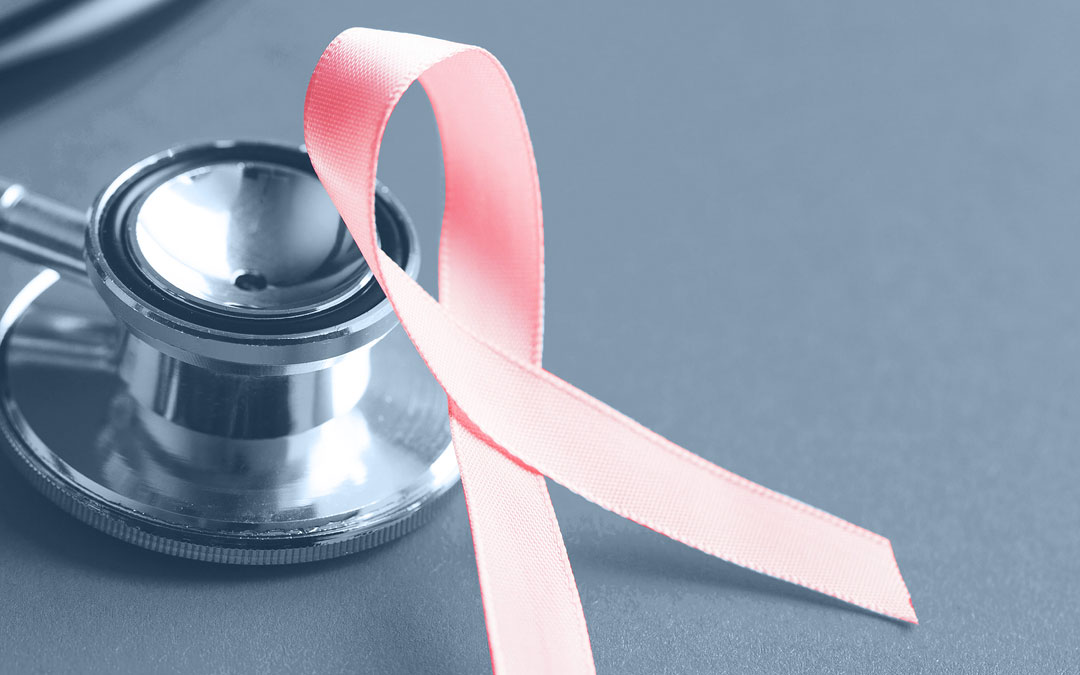Cancer Awareness Month: How to Reduce Your Risk

According to the CDC, 1 in 3 Americans will develop cancer in their lifetime, and “more than two-thirds of all new cancers are diagnosed among adults aged 60 years and older.” However, the good news is that many cancers can be prevented or caught early. October is Breast Cancer Awareness and Liver Cancer Awareness Month, so we’re highlighting ways seniors can protect themselves and their loved ones by reducing their risk of developing cancer. From regular health screenings to quitting tobacco, there are a myriad of lifestyle choices you can make to lower your risk and take charge of your health.
Below, we outline signs you shouldn’t ignore and top tips to prevent cancer.
Take CAUTION
While regular screening can help detect early signs of cancer, it’s best to be aware of common symptoms. The American Cancer Society developed a convenient acronym so individuals can remain alert:
- C: Change in bowel or bladder habits
- A: A sore that does not heal
- U: Unusual bleeding or discharge
- T: Thickening or lump in the breast or elsewhere
- I: Indigestion or difficulty in swallowing
- O: Obvious change in a wart or mole
- N: Nagging cough or hoarseness
These are not all of the symptoms, and any of these symptoms can be caused by other sources. However, the acronym serves as a reminder to take control of your health, listen to your body, and seek medical attention if you notice abnormal changes.
6 Ways to Prevent Cancer
1. Avoid Tobacco Use
Avoid using tobacco or quit using tobacco in any form. Smoking tobacco is associated with lung, mouth, throat, larynx, pancreas, bladder, cervix and kidney cancer, and chewing tobacco has been linked to oral cancer and pancreatic cancer. Secondhand smoke can also increase your risk of lung cancer, so limiting exposure altogether is healthiest.
If you need help quitting tobacco, ask your doctor about strategies and products that can assist such as using nicotine gum or patches.
2. Eat a Healthy Diet
Making a conscious effort to eat healthy foods such as lean protein, fruit, vegetables, healthy fats like nuts, and whole grains lowers your risk of cancer. Consumption of saturated fat, excessive alcohol (more than one drink per day) processed meats, and red meat can increase the risk of developing colon cancer and prostate cancer. Eating a healthier diet such as the Mediterranean diet, which focuses on plant-based foods, can help individuals maintain a healthy weight while feeling satisfied.
3. Exercise Regularly
Frequent exercise is necessary for overall wellness and has been linked to a reduced risk of various cancers such as colon cancer and breast cancer. Try to incorporate at least 30 minutes of physical activity into your daily schedule and aim for at least 150 minutes of moderate aerobic activity per week for best results. This will help you remain a healthy weight, which can lower risk of different cancers while offering many other physical benefits such as increased energy and lower blood pressure.
4. Get Health Screenings
Scheduling self-exams and screenings for different types of cancer is important to detect early signs of the disease. Treatment is most likely to be successful if cancer is caught early, so be sure to speak with your doctor about your risk of developing cancer and when to schedule exams.
5. Protect Your Skin From the Sun
Absorbing adequate amounts of vitamin D has many benefits, from regulating your immune system to boosting your mood. However, overexposure to the sun’s UV rays can lead to skin cancer. To prevent your risk of developing skin cancer, individuals should:
- Wear sunscreen with an SPF of at least 30 when outdoors, and reapply throughout the day
- Wear sunglasses and hats, and loose clothes that cover any exposed skin
- Avoid midday sun between 10 am and 4 pm when they sun’s rays are the strongest
- Don’t use tanning beds and sun lamps
6. Avoid Risky Behaviors
Risky sexual behaviors and intravenous drug use can lead to infections that can increase the risk of cancer. Adults should practice safe sex – wearing condoms and asking for infection status from each partner – to reduce the risk of contracting a sexually transmitted infection such as HIV or HPV. “People who have HIV or AIDS have a higher risk of cancer of the anus, liver and lung. HPV is most often associated with cervical cancer, but it might also increase the risk of cancer of the anus, penis, throat, vulva and vagina.”
Moreover, Intravenous drug use is associated with an increased risk of contracting HIV, hepatitis B and hepatitis C, which can raise the risk of liver cancer. If you are experiencing addiction, seek professional help.
If you or your senior loved one needs assistance, TruCare Homecare can step in and help. TruCare Homecare is a women-owned and family-operated business centered on providing compassionate in-home senior care in the greater Philadelphia area. Our facility offers adult day care services in addition to home health care services such as meal preparation, grooming, mobility assistance, and transportation.
Caregivers are dedicated to creating meaningful bonds with clients and their families, offering tailored care plans that best benefit individuals’ health care needs. For more information about our services, call our office at (610) 878-2273 or fill out a contact form.




